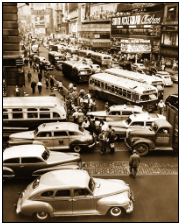Museums Role In Preserving Local Culture; Artifact Preservation!
Museums
play an important role in preserving local culture and in securing historic
values in our daily culture. With careful documentation and artifact
preservation, culture can be recorded and remembered irrespective of its
future. It can also be shared and understood by the people from different
cultures, like; museums display civil rights photographs, historic fights, and
other antiques to make them alive in people’s hearts. Apart from this, museums
out there are important in many ways to preserve our culture, read on the
article and learn the importance of museums in our society.
1. Museums Document Daily Life:
Recording
everyday life with the value of ages is one of the most important pieces in
preserving local culture. With the ages, the different cultures are
disappearing, but the careful protection of the posters and photographs like
civil rights photographs, antiques retain the heritage group in the present
age.
“Note: Daily life
encompasses rituals, religion, foods, art, and any other facets that make a
culture unique and connects it's with different people around the world.”
2. Educate Others On Local Culture:
To keep
the heritage alive and survive globalization, museums do wonders. It helps in
educating youngsters about the historic culture and its value- the way the
culture was followed by our ancestors. With an educated populace who respects
minority cultures, culture loss suddenly finds itself decreasing.
Furthermore, museums are a
wonderful place to learn about the history of age with fun and respect. The place offers hands-on learning with expert guides and visual aids.
3. Alternative Perspectives On
History:
Numerous
standard history courses and books are one-sided, concentrating on the viewpoint of the predominant culture and overlooking a great many minorities
societies with an intriguing history to be told. Exhibition halls show accounts,
courses of events, and viewpoints you may have never heard, conceivably
modifying the attitudes of individuals who have essentially never been
instructed outside the standard culture.
“Note: This
contrasting viewpoint is something any all around educated individual ought to have.
At the point when perspectives are just taken from one's way of life, they wind
up seriously constrained.”
4. Connect Those of Different Backgrounds:
4. Connect Those of Different Backgrounds:
Two sorts
of individuals will visit historical centers looking for data on different
societies: People with that legacy, and individuals keen on finding out about
that legacy who originates from an alternate foundation. Exhibition halls
concentrated on legacy and culture unite individuals, making a system of help
for various minorities and gatherings. It is encouraging groups of people like
these that keep societies from vanishing and dialects from biting the dust.
Historical
centers and their benefactors are basic segments in the push to forestall
culture and language misfortune. These misfortunes happen when the minority
culture feels substandard or immaterial and endeavors to make its youngsters
like those of the prevailing society. By utilizing a gallery to develop regard
and enthusiasm for these minority societies, we are as of now attempting to forestall
social misfortunes.
Museums
have a long history going back to the 3rd century B.C. when the first known
museum was opened at the University of Alexandria in Egypt. Over the years, the
importance of museums became a trend and the culture spread nearly every part of
the world and today. It has become
uncommon to find any country that does not have a museum, no matter how small
it may be. This infers that the thought of the museum has become a global
concept and have survived the 20th century.

Comments
Post a Comment